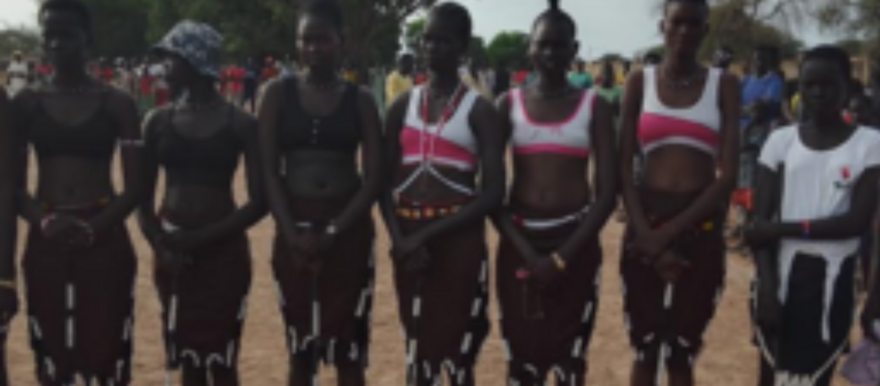The governor of Warrap State has advised the youth in the state not to abandon time-tested cultures for new and negative practices and said he will be forced to make laws to deal with errant youths.
Gen. Aleu Ayieny Aleu was speaking on Sunday during the launch of the cultural day at the Kuajok Cultural Theatre which was attended by the Kuac, Aguok, Luou, Twic Mayardit, and Shilluk cultural groups among others.
“To you, my people, do not abandon our cultures or you will force me to make a law that will arrest you. Young people go for night dances and after a while, you cannot hear any songs or see any dances going on because people have paired up and gone some distance away,” he said. “During our time, youth met in open playgrounds and they performed their songs and danced through the night and yet marriages happened through doors, unlike these days where almost every family is formed through windows. This is one of the causes of conflict in the communities.”
Governor Aleu appreciated the different cultural groups, including Western Bahr El Ghazal State’s Luou Cultural Group from Alel-Thony Payam, and urged the cultural troop from Abyei to perform freely, saying their security was guaranteed.
Meanwhile, Tereza Chol, the Shilluk (Chollo) Dance Group leader, said she was proud to showcase her culture.
“We the Shilluks are so proud of our culture and if you have one sheet of cloth and beads like this, you can use them to show your culture everywhere you live because we are married by Dinkas but still distinguished as Shilluk,” she said. “When you want to offer food and water to your husband, you kneel as a sign of respect.”
On his part, Marko Abuyou Akech, a dancer with the Luou Dance Group, said their culture is intact because it is revered and practiced.
“On behalf of the Luou group, I am happy to show my culture here and see other cultures too. We are from Alel-thony Payam in Western Bahr El Ghazal State and we have so many dances including “Adhuk” and our main food is dry groundnuts,” he said. “We also keep cattle for marriage and the number of cattle for bride price is determined by the two families. Unlike the Dinka, we pay between 11 and 16 cows as bride price.”
“We also keep our cattle in near our homes and only drive them to Dinka areas in the dry season and the Dinka do not rustle them,” he added.
Jenifer Nyibol Aguil, of the Twic Mayardit Cultural Group, said they take their culture seriously because it descended from their forbearers.
“Culture is very important for all of us and we are proud of our culture,” she said. “How we dress in Twic is very important because it came from our grandparents.”




